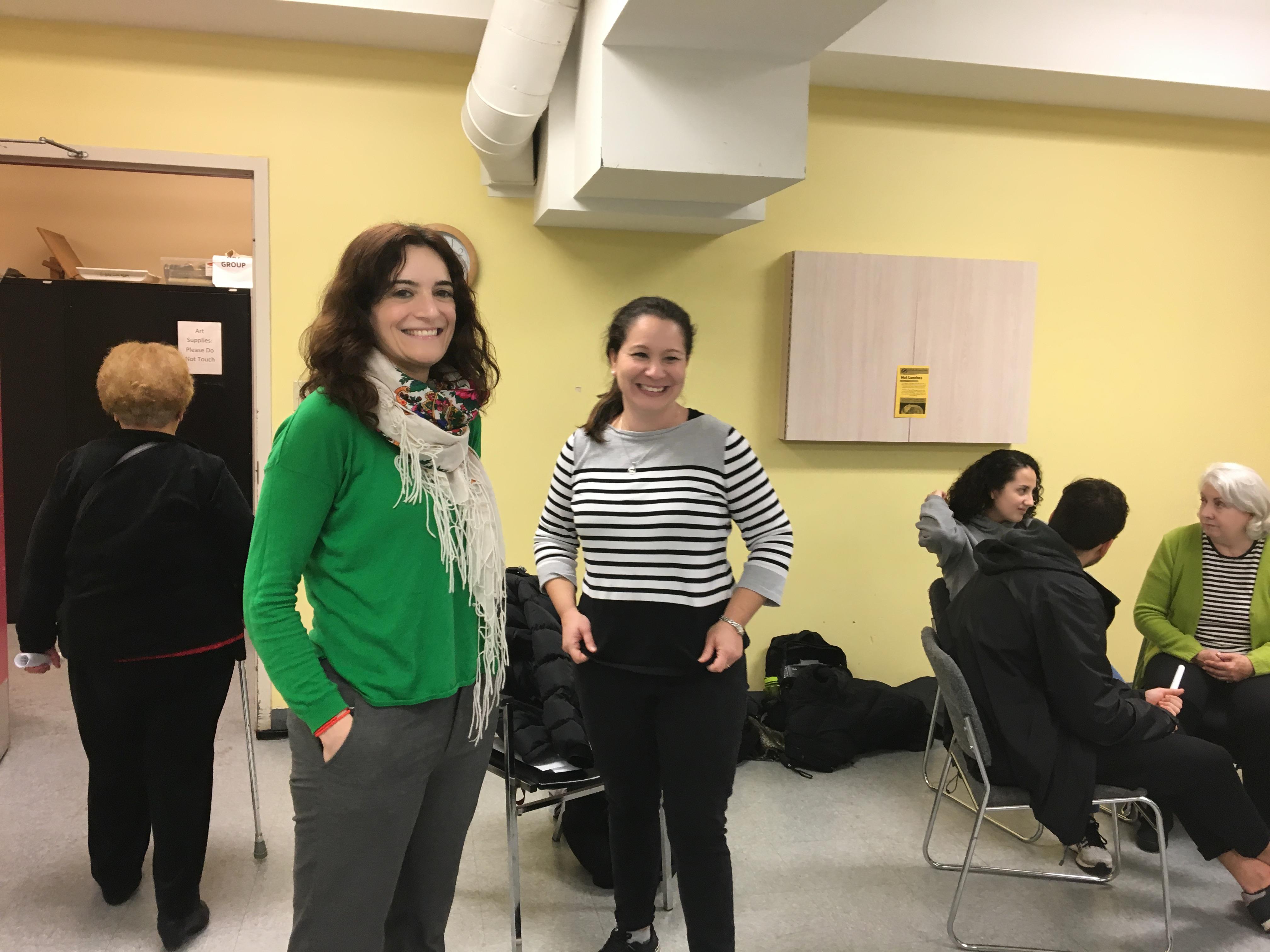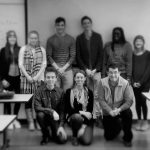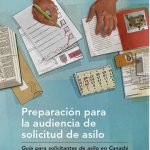If you are an agency or organization interested in working with us, we’d love to hear from you!
Read some samples of what our partners said about our projects and our volunteers:
Project Mosqoy.org, Website translation (2018-2019)
24 January 2019
Dear Dr. Joël Castonguay-Bélanger,
I am writing to thank the Faculty of Arts for offering Spanish for Community as part of the Spanish 401 curriculum last semester. I am not exaggerating when I say that this partnership has been monumental for our organization’s work, and I truly hope that it is the beginning of a longer-term partnership with the University of British Columbia’s Department of French, Hispanic & Italian Studies.
Mosqoy is a small grassroots Canadian-Peruvian charitable organization that works in collaboration with highland Indigenous communities of the Andean mountains to mitigate adverse effects of unsustainable tourism and development, while nurturing their threatened culture. We offer fair-trade market outlets for their textiles, educational scholarships for marginalized youth, and knowledge exchanges for students.
Our Fall 2018 partnership with Dr. Maria Carbonetti’s class, as part of Spanish for Community, offered opportunities for her students to translate components of our website from English to Spanish. As part of this, we gave her students a robust orientation on our values and mission; we also explored the art and power of translation from an international development perspective. The students learned about our work, the weavers with whom we partner, and the intricacies of translating in real-time. Not only was this work valuable for our 2019 bilingual website launch, to appeal to both of our regional audiences (in North America and Latin America), but also to prepare us for our larger multilingual goal.
As an organization that works closely with Quechua subsistence communities in the Peruvian Andes, the accessibility of our website into Quechua (both oral and written) is vital to our values and mission; in this way, the population that we serve will have the opportunity to interact with the dialogue by reading or hearing their own stories. Additionally, the website will serve as an advocacy tool to educate about the value of the Quechua language and culture. In order to do this, we must first translate our website into Spanish. Therefore, the translations by the students of Spanish for Community are key in helping us launch one of the first quadrilingual and spoken Quechua websites in the world.
Because we are a small, grassroots, volunteer-run, non-profit organization, we do not have the capacity to hire professional translators to do this work for us. We also believe in the knowledge exchange, relationship-building, and learning opportunities that take place during these types of exchanges. To be able to apply one’s learning as a tangible skill – in the real world – brings purpose to the teachings; it brings passion to the principles, life to the lessons.
I have seen firsthand how these types of experiential learning opportunities, with inspiring mentors like Dr. Carbonetti, can kickstart career paths for changemakers. After working with the students of Spanish 401 this past term, I have no doubt that this type of learning and inspiration has occurred in them. The incredible efforts that these students contributed to Mosqoy will live on long after their semester.
All of this would not be possible without the support of the Faculty of Arts, and the Department of French, Hispanic & Italian Studies. Thank you again for your belief in experiential education and community collaborations. You have truly made a difference.
With gratitude,
Ashli Akins
Founder & President, Mosqoy
ashli@mosqoy.org | 250.857.8637 | www.mosqoy.org
Project “Gift from Our Lives” (2016-2017):
“Dear Maria,
María José Torrejón
Project, We Love Veggies, with REACH, Multicultural Family Center and Clinic 2016
Dr. G. Averill
Dean Faculty of Arts
Dear Dr. Averill:
On behalf of the REACH Community Health Centre I would like to express our appreciation and gratitude to the faculty and students of the French, Hispanic and Italian Studies Department for their major contribution to our Program. As a Community Service Learning Project, students from the class of Spanish 207, Sections 201-202, volunteers from Spanish 302, and fourth year Spanish Program students translated our “We Love Veggies” participant manual into Spanish. The “We Love Veggies” program at REACH Community Health Centre is an eight week cooking course for parents of children aged 0-6 which facilitates the addition of healthy vegetables to their diets. The program also builds the capacity of the parents to develop feeding strategies to create health attitudes towards mealtimes for their children. Participants include families from a wide variety of cultural groups in the Commercial Drive area, and the Spanish translation of the manual will be invaluable. In addition, staff and students assisted us with improving the cultural relevance of the material to make the manual more useful and appealing to the participants. We are also very thankful for their unexpected generosity of having 25 copies of the manual printed.
We are particularly grateful to Dr. Maria Carbonetti, who coordinated the project, as well as Professor Sylvia Bascou Vallarino and Mackenzie Balance and Vincent Cox, volunteers from advanced Spanish courses. We believe these projects are mutually beneficial; we have an important and useful resource for our program, and the students have an increased awareness of community issues and are able to contribute to them in a meaningful way. We look forward to the opportunity to participate in more such projects in the future.
Yours sincerely,
Patricia Dabiri, Manager,
REACH Multicultural Family Centre
__________________________________________________________________________________________________________
Project with BCWomen’s Hospital, Best Birth Clinic 2016
Dean, Faculty of Arts University of British Columbia
Dear Dr. Averill:
Dr. Jan Christilaw
Vice President, Provincial Women’s & Newborn Health, PHSA Site Executive, BC Women’s Hospital + Health Centre
4500 Oak Street – B2 West Vancouver, BC V6H 3N1 P 604 875 3566 | F 604 875 3456 jchristilaw@cw.bc.ca | www.bcwomens.ca
Life. Our line of work.
On behalf of BC Women’s Hospital, I would like to thank Dr. Maria Carbonetti, Professor Sylvia Bascou Vallarino, and the students of the class: Spanish 207, Sections 201-202 for their volunteer work for our Hospital. They translated several documents in our patient information library into Spanish. Of particular note, they translated a complicated patient-decision-aid where families are guided to assess the benefits and risks of choosing to plan vaginal birth or elective repeat caesarian section after a previous caesarian section.
With the diversity of languages and cultures in our Province, it makes us proud to be able to meet women’s needs for high quality health information in their first language. At the same time, we appreciate the community service that faculty and students at UBC are engaging in. We applaud your Community Service Learning Projects. The role-modeling this provides to university students can last a lifetime.
Sincerely,
Jan Christilaw, MD, FRCSC, MHSc Vice President, Provincial Women’s & Newborn Health Provincial Health Services Authority Site Executive, BC Women’s Hospital + Health Centre
_______________________________________________________________________________
Project with Kimbrace.org, Refugee Hearing Preparation: A Guide for Refugee Claimants 2014
07 April 2014
Dear Dr. Gage Avrill (Dean Faculty of Arts) and Dr. Gaby Pailer (Head French, Hispanic and Italian Studies),
I write to gratefully acknowledge the outstanding work of the Community Service Learning Program at UBC in translating the Refugee Hearing Preparation: A Guide for Refugee Claimants (“the Guide”) into Spanish. The Guide, created by Kinbrace Community Society, is developed for refugee claimants to assist them in preparing for their hearings before the Immigration and Refugee Board of Canada-Refugee Protection Division (IRB-RPD).
The UBC Spanish classes of Professors Maria Carbonetti and Kim Beauchesne translated the updated version of the Guide during the month of March 2014 competently, quickly and efficiently. Mr. Fernando Campos, convention refugee and former refugee claimant, and Fran Gallo, Kinbrace’s READY Tour Coordinator, thoroughly enjoyed their visits to their respective classes to introduce the work we do at Kinbrace and the experiences that led Mr. Campos to make a refugee claim in Canada.
At the READY Tour, which is an orientation to the refugee hearing for refugee claimants with upcoming hearings before the IRB-RPD, Kinbrace has been distributing a transitional hearing preparation guide to refugee claimant and service provider participants, but only in English. With this translation of the updated Guide, we will be able to provide the guide in Spanish to the native Spanish speakers that participate in the tour. We will also make the Guide available in hard copy to community agencies that work with refugee claimants and on-line for access to the community at large. Our previous Guide is available on Click-law and through the BC law library system. The new Guide will also be made available to those community legal services and through our website www.kinbrace.ca.
Recently Kinbrace applied for a Law Foundation of Ontario grant to make the hearing preparation guide applicable to Ontario in 9 languages. With adjustments to the current Spanish translation of the BC Guide, the UBC students’ work will hopefully be used by refugee claimants and community advocates in Ontario soon.
Professors Carbonetti and Beauchesne are invited to the UNHCR and IRB sponsored launch of the new Guide which will take place on April 30th at the offices of the Immigration and Refugee Board. We hope that they will join us in celebrating the publication of the Guide in English, Spanish, Simplified Chinese, and Arabic. Following that event, the Guide will be advertised to community agencies throughout the province and distributed to refugee claimants and the agencies that service them.
It was a pleasure collaborating with Professors Carbonetti and Beauchesne and their students. The Community Service Learning program is an amazing initiative that allows students to apply their newly learned skills to assist vulnerable members of the community. I express a sincere thank-you to UBC for this innovative and generous initiative.
Sincerely,
Loren Balisky, Executive Director



Comments by janag237